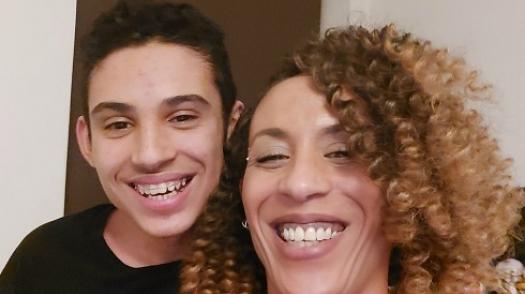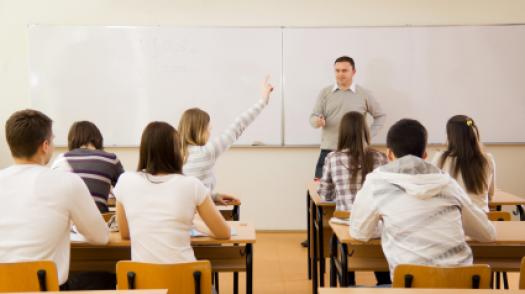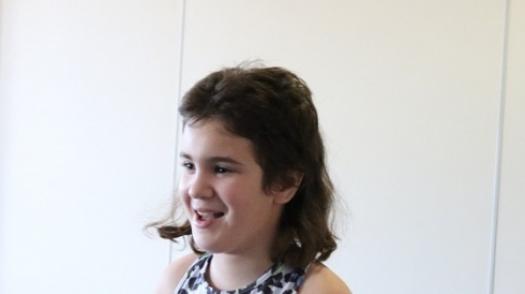
Infection: Thomas
In December 2019, Thomas was admitted to hospital with sepsis, later confirmed to be caused by Bird Flu. He went into cardiac arrest resulting in a brain injury. Mum Rayna shares their story.
In September 2019, teenager Emma fainted at her local GP surgery. Emma hit her head and was immediately admitted to hospital. Mum Joanna shares their story, with help from Emma.

Published: January 2022. Date of brain injury: September 2019 (aged 17 years old)
Emma fainted at our local GP surgery, hitting her head twice. She had a vasovagal episode (also referred to as a common faint) – a disorder causing a rapid drop in heart rate and blood pressure, resulting in decreased blood flow to the brain and fainting.
Emma had just had a vaccination and vasovagal episodes can occur when your body overreacts to certain triggers, such as the sight of blood, having injections or stressful situations.
Explaining the day, Emma said: “I felt very faint after the vaccine, but I thought I was alright and was taken to Reception.
“When I got to the Reception desk I fainted and hit my head, fracturing my skull.”
When Emma collapsed, she hit the front of her head on the counter and the back of her head on the concrete floor. She was initially unconscious, and an ambulance was called to take her to the hospital.
It was a very shocking and stressful time for the whole family. I was informed of the accident on my way home from work and drove to meet the ambulance at the hospital.
My husband travelled in the ambulance with Emma. Neither of us could understand what had happened to her or why.
When Emma arrived at the hospital, I also suffered a vasovagal episode and fainted due to the shock and was admitted with her.
Emma’s fall impacted all of us and we were all very worried. Her brothers were studying away, one overseas in the USA, and felt helpless. It was very traumatic for Emma’s Dad to have to communicate the news to them.
Emma was in hospital for eight days. Her head CT scan showed a contrecoup injury – where the brain knocks against the inside of the skull on the opposite side from the external force.
Emma was diagnosed with multiple, predominantly frontal, haemorrhagic contusions and a left occipital skull fracture involving the skull base.
After her fall, Emma experienced changes in concentration and memory. She also experienced significant migraines which made her sick. This affected her mood and wellbeing, as well as her ability to do things for herself at home. Additionally, she had to wear a neck brace for three months due to the position of her fractures which was uncomfortable and restrictive.
I knew the potential consequences of an acquired brain injury (ABI) and the challenges young people can face when returning to education, so I knew that we would need some additional support."
A few months before Emma’s fall, through my work as a SENCO, I attended a training day focused on the impact of ABI, led by the Neuropsychology Team at the Queen’s Medical Centre (QMC) Nottingham.
They introduced the Sam White Pathway, and after Emma’s fall, I knew immediately we would need it. I contacted the Neuropsychology Team while Emma was in the QMC, and they made the initial referral to The Children’s Trust’s Brain Injury Community Service (BICS). They conducted initial cognitive tests whilst Emma was still in hospital. This gave all professionals a baseline of the impact of her injuries.
The telephone assessment and home visit from Alison Fletcher, Brain Injury Community Service Professional Lead for The Children’s Trust, were both informative and reassuring for Emma – especially in terms of helping to understand exactly what had happened to her.
They came into school and educated my teachers on how best to support me,” explained Emma. “What helped me most was being able to take breaks during my lessons and the exam arrangements.”
Alison’s coordination of Emma’s return to school was instrumental in helping them understand the impact of Emma’s ABI and how best to support her.
Alison explained: “Emma wisely decided to repeat Year 12, and this worked out extremely well for her. The school was receptive to understanding Emma’s needs and adapting her timetable accordingly. Exam Access Arrangements were agreed, and this made completing exams less stressful for Emma.”
As parents Alison’s involvement helped to reassure us that there were strategies and support that could help Emma navigate the difficult journey back to full-time education. Being able to draw on Alison’s professional knowledge and expertise was very valuable to us.
For us, the first Lockdown ended up being incredibly helpful for Emma. She had just begun a slow reintegration to school and was finding the travel, and the school environment, exhausting.
Due to the technology provided by school, and the ability to learn at home, Emma was able to make a swifter return to full-time learning than she might otherwise have done. She did not have the additional pressure of being in school and could take rest breaks when she needed them.
Emotionally speaking, the last 18 months have been very challenging for all of us. Emma has needed psychological counselling to help her come to terms with her accident and the impact on her life. There has been a considerable amount of grief and anger that she has had to deal with, which has made life difficult for us as a family.
Practically, the complex nature of Emma’s injury meant we were dealing with a number of different medical teams and professionals. This was very demanding emotionally and in terms of time. As Emma turned 18 two weeks after her accident she also fell between paediatric and adult rehabilitation services. The coordination of the referral between these different teams was very important in establishing the rehabilitation programme Emma needed.
An important part of our role in BICS was linking in with the adult neurorehabilitation team to which Emma was referred,” explained Alison.
“We wanted to ensure joined-up working in relation to school liaison and appropriate neurorehabilitation support for Emma. I was comfortable to step away once this was all in place, and I am so delighted to see how well Emma has done!”
Emma is doing so well. In 2020 she achieved A*A*A in her A Levels, scoring full marks for her history coursework.
She still struggles with acute fatigue, slow processing, and frequent migraines. Emma also lost her sense of smell and has had to learn to deal with issues related to this – especially its implications for living independently.
However, Emma has just completed her first term at Exeter University where she is studying Law and we are very proud of her. Emma has a comprehensive support package in place at university including assistive technology, welfare support and Exam Access Arrangements.
“I’m still struggling to balance university life with the fatigue,” said Emma, “and it’s clear that universities could do with some educating like The Children’s Trust provides for teachers in schools to better understand their students.
“However, despite some difficulties with this, my studies are going very well. Thank you to The Children’s Trust for the support they provided in those early days.”
As parents we feel it’s so important that organisations like The Children’s Trust continue to offer the type of support and advice they do to families and young people who suffer an ABI. An ABI can occur suddenly, and its impact can often be hidden once the physical trauma is healed.
Families and educators need the depth of knowledge and type of information and guidance provided by The Children’s Trust to fully understand the unique nature and impact of an ABI allowing young people the best chance of returning to full time education. We cannot thank them enough.

In December 2019, Thomas was admitted to hospital with sepsis, later confirmed to be caused by Bird Flu. He went into cardiac arrest resulting in a brain injury. Mum Rayna shares their story.

Our section on moving towards adulthood looks at employment, driving and alcohol after an acquired brain injury.

In October 2019 Valentina fell forwards off the banister in her family home. Mum Janine shares their story.